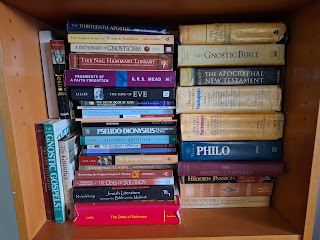

75) Jesus said: There are many standing at the door, but it is the solitary who will enter the bridal chamber.
The Mystical Union: Entering the Bridal Chamber with Jesus
In the sacred teachings attributed to Jesus, there lies a profound metaphorical narrative about entering the bridal chamber. Within this metaphor lies a profound spiritual truth, symbolizing the intimate union between the believer and the divine. Let us delve deeper into this allegory, exploring its significance and implications for the faithful.
In the Gospel of Matthew, Jesus speaks of the concept of the bridal chamber, imparting wisdom that transcends mere earthly understanding. He says, "There are many standing at the door, but it is the solitary who will enter the bridal chamber" (Matthew 25:1-13). This enigmatic statement carries layers of meaning, inviting contemplation on the nature of spiritual union and the path to enlightenment.
At its core, the bridal chamber symbolizes the ultimate union between the believer and Jesus, the divine bridegroom. Just as a bride joins her groom in marriage, so too does the faithful soul unite with Jesus in a mystical bond of love and devotion. This union is not merely symbolic but transformative, imbuing the believer with the qualities of the divine.
The journey to the bridal chamber begins with a solitary commitment to Jesus. In Matthew 7:7, Jesus encourages us to "ask, seek, and knock" at the door of our own spiritual understanding, rather than relying blindly on external authorities. This inner quest for truth and enlightenment distinguishes the solitary seeker from the multitude who remain spiritually deaf, entrusting their faith to religious leaders instead of forging a personal relationship with Jesus.
Baptism emerges as a pivotal rite in the journey toward the bridal chamber. Through baptism, believers symbolically enter into union with Jesus, experiencing a spiritual rebirth and purification of the soul. In John 3:5, Jesus declares, "Truly, truly, I say to you, unless one is born of water and the Spirit, he cannot enter the kingdom of God." Baptism thus becomes a sacred initiation into the mystical union with the divine, preparing the believer to enter the bridal chamber.
The bridal chamber signifies more than just a union between two individuals; it represents the merging of the believer's essence with that of the Savior. This concept of consubstantiality echoes Jesus' prayer for unity in John 17:21, where he petitions, "that they may all be one, just as you, Father, are in me, and I in you, that they also may be in us." Through this profound unity, the believer becomes conformed to the likeness of Jesus, embodying his moral and spiritual attributes.
The imagery of the bridal chamber also evokes the notion of being "born from above," as articulated by Jesus in John 3:3. This spiritual rebirth transcends earthly limitations, elevating the believer to a higher plane of existence where divine communion is realized. Just as a newborn enters the world with a fresh perspective, so too does the believer emerge from the bridal chamber with renewed spiritual insight and understanding.
In essence, the journey to the bridal chamber is a solitary quest for spiritual enlightenment and union with Jesus. It requires courage to step away from the crowd and seek truth independently, as well as humility to submit to the transformative power of baptism. Yet, the rewards of entering the bridal chamber are immeasurable, as it offers the believer an intimate union with the divine and a profound sense of purpose and fulfillment.
As we reflect on Jesus' teachings regarding the bridal chamber, may we be inspired to embark on our own spiritual journey, seeking union with the divine and embracing the transformative power of baptism. For it is in the solitary quest for truth and enlightenment that we find our truest union with Jesus, the divine bridegroom, and enter into the mystical realm of the bridal chamber.
The many who stood before the door are probably the foolish virgins of Matthew 25:1-13; only the 'solitary' or 'single one’ those who have committed themselves to Jesus can enter the bridal chamber. True marriage is the union with Jesus, the true husband and it is his bridal chamber that the believer is supposed to enter. We must enter the bridal chamber by baptism in this age or life and become married to Jesus to be like him morally and spiritually than in the age; to come we can enter into the true bridal chamber.
The male and female are united in the bridal chamber now the bridal chamber is a uniting with the divine when one is united with the Father and the Son the mystical union between the bridegroom and Anointed bride. The bridal chamber is to be made consubstantial with the Saviour that is the elect shares body and essence with the Saviour because of its oneness and union with Saviour that is why it is called the bridal chamber and this is why the saviour came to make the two one in the bridal chamber that is to be made consubstantial baptism is also called the bridal chamber because of the agreement and the inseparability of the one whom he has pot on. The bridal chamber is also to be born from above.
75)# Jesus said, "Many [are called and] are standing at the door [of the Word but cannot hear with a carnal ear thanks to putting their trust in religious leaders instead of Him], but it is the solitary [those who know that we should ask, seek and knock at our own cistern and not be led astray by false teachers ("One is your Teacher" Mat 28:8) who will enter the bridal chamber [these are set-apart from the world]."
















































